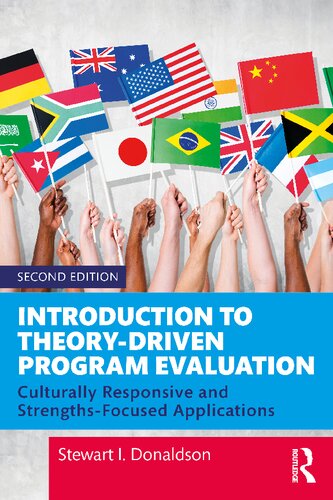

Most ebook files are in PDF format, so you can easily read them using various software such as Foxit Reader or directly on the Google Chrome browser.
Some ebook files are released by publishers in other formats such as .awz, .mobi, .epub, .fb2, etc. You may need to install specific software to read these formats on mobile/PC, such as Calibre.
Please read the tutorial at this link: https://ebookbell.com/faq
We offer FREE conversion to the popular formats you request; however, this may take some time. Therefore, right after payment, please email us, and we will try to provide the service as quickly as possible.
For some exceptional file formats or broken links (if any), please refrain from opening any disputes. Instead, email us first, and we will try to assist within a maximum of 6 hours.
EbookBell Team

4.3
8 reviewsIntroduction to Theory-Driven Program Evaluation provides a clear guide for practicing evaluation science, and numerous examples of how these evaluations actually unfold in contemporary practice. A special emphasis is placed how to conduct theory-driven program evaluations that are culturally responsive and strengths-focused.
In this thoroughly revised new edition, author Stewart I. Donaldson provides a state-of-the art treatment of the basics of conducting theory-driven program evaluations. Each case follows a three-step model: developing program impact theory; formulating and prioritizing evaluation questions; and answering evaluation questions. The initial chapters discuss the evolution and popularity of theory-driven program evaluation, as well as step-by-step guide for culturally responsive and strengths-focused applications. Succeeding chapters provide actual cases and discuss the practical implications of theory-driven evaluation science. Reflections, challenges, and lessons learned across numerous cases from practices are discussed.
The volume is of significant value to practicing evaluators, professors of introductory evaluation courses and their students, advanced undergraduate and graduate students, and serves as a text or a supplementary text for a wide range of evaluation and applied research courses. It is also of great interest to those interested in the connections between work and health, well-being, career development, human service organizations, and organizational improvement and effectiveness.